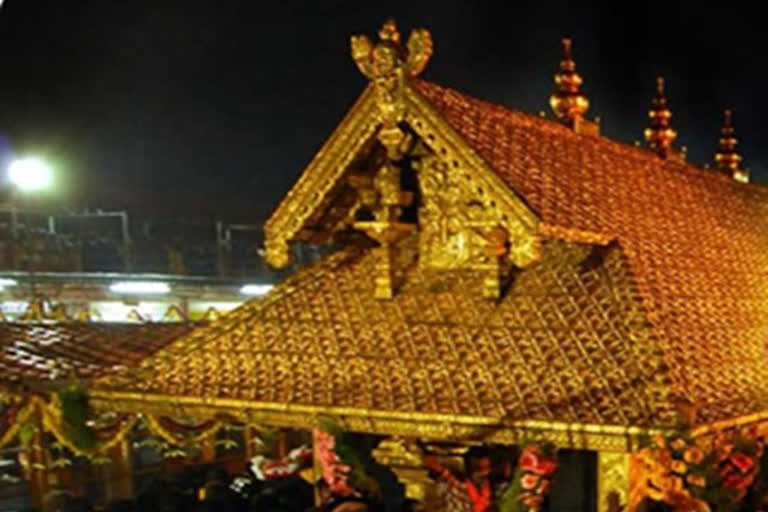In his 11-page explanation to the Travancore Devaswom Board (TDB), which manages the Sabarimala temple, he said the ritual was held to restore the 'grace' of the deity, which was lost as the temple faced many controversies and allegations during the Chithira Atta celebrations and the Mandala-Makaravilaku festival.
"The temple was facing many issues during the Chithira Aatta celebration and mandala-makaravilakku festival.
When such issues come up, we need to perform a purification ceremony to revive the lost grace of the deity," Tantri said in his explanation.
He also said that since there was no puja on December 31, 2018, the next day-January 1, 2019, witnessed huge crowds, prompting him to perform the ritual on January 2.
"Hence, the allegations that the temple was closed due to the women's entry and the act was against the Supreme Court order of September 28 are baseless," he said.
The Tantri also said that it was not necessary to take permission from the TDB to perform the rituals.
"The ceremony was conducted after informing all the devoswom officials who were present at the Sannidhanam at that
time. I had informed the TDB president and the Devaswom Commissioner that purification of the idol was being done and the door of the sanctum sanctorum was not closed fully as alleged," Tantri explained in his letter.
He also said he had a telephonic conversation with TDB president A Padamakumar and Board member Shankar Das on the need to perform a purification ceremony and the ritual was done with full co-operation of the Devaswom Board officials.
On the rights of his family Tazhamon Madom to perform the puja at Sabarimala, the Tantri said his post was not a government appointment.
"The Thazamon family has been conferred with the priestly duties for generations. This is not a government appointment," he said.
The TDB, the apex temple body in Kerala, had sought an explanation from the head priest for the purification rituals performed after two women of menstruating age entered the hill temple.
The over two-month long tumultuous annual pilgrimage season at Sabarimala had witnessed frenzied protests by devotees and right wing activists against the entry of young women.
After 42-year old Bindu and Kanakadurga, 44, offered prayers at the Lord Ayyappa temple on January 2, the sanctum sanctorum was closed under tantri's directive to perform the 'purification' ritual, which is carried out when there is a violation of temple customs.
Rajeevaru faced harsh criticism from Chief Minister Pinarayi Vijayan, Devaswom Minister Kadakampally Surendran and other ministers over the purification rites.
Senior Kerala minister G Sudhakaran had even called him a "Brahmin monster" for conducting the ritual.
"The tantri is a symbol of caste devil. He is not a Brahmin. He is a Brahmin monster. If a Brahmin becomes a monster, he will be a terror," the minister had said.
Meanwhile, the Kerala State Commission for Scheduled Castes and Scheduled Tribes had sent a show-cause notice to Rajeevaru over the purification rite performed at Sabarimala.
"Bindhu, one of the women who entered the Sabarimala shrine, was a Dalit.We have received 2-3 complaints, stating that the purification rite was performed because of that and the ritual was against her," the commission had said.
Earlier, there were media reports that the CPI(M)-led LDF government planned to remove the tantri for conducting the purification rituals, but the TDB had rejected the reports. Sabarimala had witnessed intense protests against the LDF government's decision to implement the landmark September 28 2018 Supreme Court verdict, permitting women of all age groups into the hill shrine.
Traditionally, women of menstruating age or in the age group of 10 to 50 years were not allowed to enter the temple as the deity, Lord Ayyappa, was a "Naishtika brahmachari" (perennial celibate).
